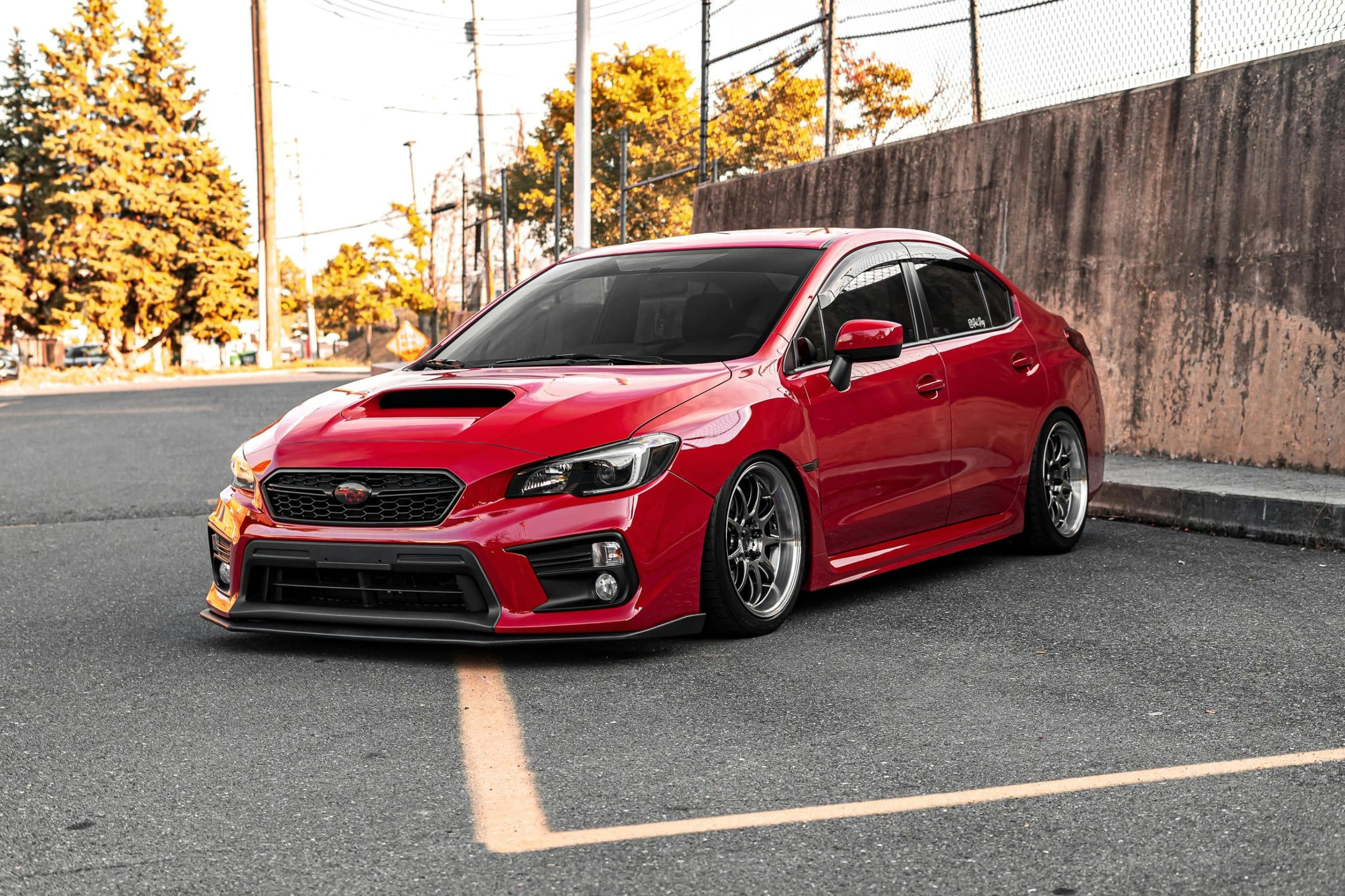How to Choose the Right Performance Brake Kit for a Track-Ready Subaru Impreza?

Building a track-ready Subaru Impreza is no small undertaking. Making the correct decisions in the selection of components is crucial. One key component is the brake system. Upgrading your stock brake kit to a performance brake kit can drastically improve your vehicle’s braking capability. Knowing which brake kit to choose can be a daunting task given the countless options available. This article will guide you in choosing the right performance brake kit for your Subaru Impreza.
Understanding the Components of a Performance Brake Kit
To make an informed decision about the right brake kit for your track-ready Subaru Impreza, you need to have a basic understanding of the components that make up a brake kit. These include brake pads, rotors, and calipers.
A lire en complément : How to Integrate a Touch-Screen Infotainment System into an Older Vehicle?
Brake pads play a critical role in a vehicle’s stopping power. They create the necessary friction against the rotor to slow or stop the vehicle. The type of pad will determine the level of friction, heat resistance, and noise level.
Rotors, sometimes referred to as brake discs, are another essential component. When you apply the brakes, the brake pads clamp down on the rotors to slow or stop the vehicle. The rotor’s design and material significantly affect the braking performance and heat dissipation.
Cela peut vous intéresser : How to Install a Performance Cat-Back Exhaust on a Mini Cooper S for Enhanced Sound?
Lastly, the caliper is the device that forces the brake pad against the rotor when you step on the brake pedal. The caliper’s size, design, and material can all impact braking performance.
Identifying the Ideal Brake Pad Material
Choosing the right brake pad material is crucial for achieving high performance on the track. Different materials provide varying levels of friction and heat resistance, which are key determinants of braking performance.
Semi-metallic brake pads are a popular choice for track use due to their excellent heat dissipation and durability under high-stress conditions. However, they may produce more noise and brake dust than other types.
Ceramic brake pads are known for their quiet operation and low dust production. They also provide consistent performance across a wide range of temperatures. However, they may not provide the same level of high-temperature performance as semi-metallic pads.
Selecting the Right Rotor Design
Rotors come in different designs, each with its own set of advantages and drawbacks. Your choice will depend on your vehicle’s specific needs and the track conditions you’ll be driving on.
Plain rotors, also known as blank rotors, are the most common type seen on stock vehicles. They’re reliable and cost-effective, but they may not provide the best performance for aggressive track use.
Slotted rotors have channels or slots cut into the surface, which help to vent gas and heat away from the rotor, improving performance. They’re a good choice for high-intensity driving, but they can cause faster pad wear.
Drilled rotors have holes drilled into them to help dissipate heat and gas. However, the drilling can weaken the rotor, making it more prone to cracking under high-stress conditions.
Considering Caliper Design
When upgrading your brake kit, consider the caliper design. The two most common types are floating and fixed calipers.
Floating calipers move in relation to the rotor, ensuring the brake pads make even contact. They’re less expensive and easier to install, but may not offer the same level of performance as fixed calipers.
Fixed calipers, on the other hand, provide better distribution of braking force, leading to improved performance. However, they are more complex, more expensive, and require precise alignment during installation.
Choosing the Right Brake Kit Size
The size of the brake kit is another important factor to consider. Larger brake kits, often referred to as big brake kits, offer superior stopping power compared to stock brake kits. They feature larger rotors and calipers, and sometimes even include more brake pads.
However, they require more space and may not fit inside your stock wheels. Therefore, you’ll need to check the clearance with your current wheel setup or consider upgrading your wheels as well.
Remember, the main goal is to improve your vehicle’s braking performance to match the demands of track driving. Investing in a high-quality brake kit will ensure your Subaru Impreza is ready for any track conditions you throw at it.
Analyzing Rotor Rings and Rings Thickness
In the world of high-performance braking systems, rotor rings and their thickness play a considerable role in determining the overall efficiency of your brake kit. As the component that physically makes contact with the brake pads to slow down your Subaru Impreza, rotor rings have a direct impact on the braking performance and heat management.
Rings thickness is a key feature to note when choosing your brake kit. The thickness of the rotor ring can affect heat dissipation, with thicker rings often providing better heat management. This is because the greater mass of thick rotor rings can absorb and dissipate more heat, reducing the risk of the braking system overheating during intense track performance.
However, there’s a trade-off. Thicker rotor rings are heavier, which could negatively impact the vehicle’s overall performance. A balance must be struck between the desired braking performance and the weight limitations of your Subaru Impreza. Each track day could demand different rotor rings thickness depending on the intensity and duration of each lap.
When browsing product details for brake kits, make sure to check the exact product dimensions, including the rotor rings thickness. This will help ensure the brake kit will fit your vehicle and meet your specific track day requirements.
Deciding on Brake Upgrade Materials
When selecting the materials for your brake upgrade, consider the advantages of stainless steel components. Stainless steel rotors, calipers, and brake lines can offer superior durability and high performance compared to their conventional counterparts.
Stainless steel rotors can resist warping and cracking under high-stress conditions, providing consistent performance even during intense track use. The material’s high heat resistance can also enhance braking efficiency by maintaining optimal braking temperatures.
Stainless steel calipers, on the other hand, are known for their excellent rigidity and strength. This results in consistent brake pad clamping force, leading to improved brake response and pedal feel.
Finally, stainless steel brake lines can offer an enhanced pedal feel by reducing line expansion, which can lead to more precise brake modulation.
Keep in mind that while stainless steel components can offer superior performance, they may not be compatible with all Subaru Impreza models. Always refer to the fits year and year model specifications to ensure compatibility with your vehicle.
Conclusion: Achieving High-Performance Braking for Your Subaru Impreza
In conclusion, building a track-ready Subaru Impreza involves a careful selection of high-performance brake components. From understanding the roles of brake pads, rotors, and calipers, to considering the materials and dimensions of these parts, every detail matters in achieving optimal track performance.
Choosing the right brake kit means considering the brake pad material, the rotor design, the caliper type, and even the size of the brake kit. Additionally, the use of stainless steel components can enhance the durability and performance of your brake system, providing the confidence you need for every track day.
Remember to always verify the product details to ensure the brake kit will fit your Subaru Impreza’s year model. Your choice in brake upgrade should not only elevate your vehicle’s performance and safety, but also match the unique requirements of your track driving experience.
Transforming your Subaru Impreza into a track-ready vehicle is an exciting journey, and equipping it with the best brake system is a vital part of that journey. Happy driving, and enjoy the improved track performance of your Subaru Impreza!
